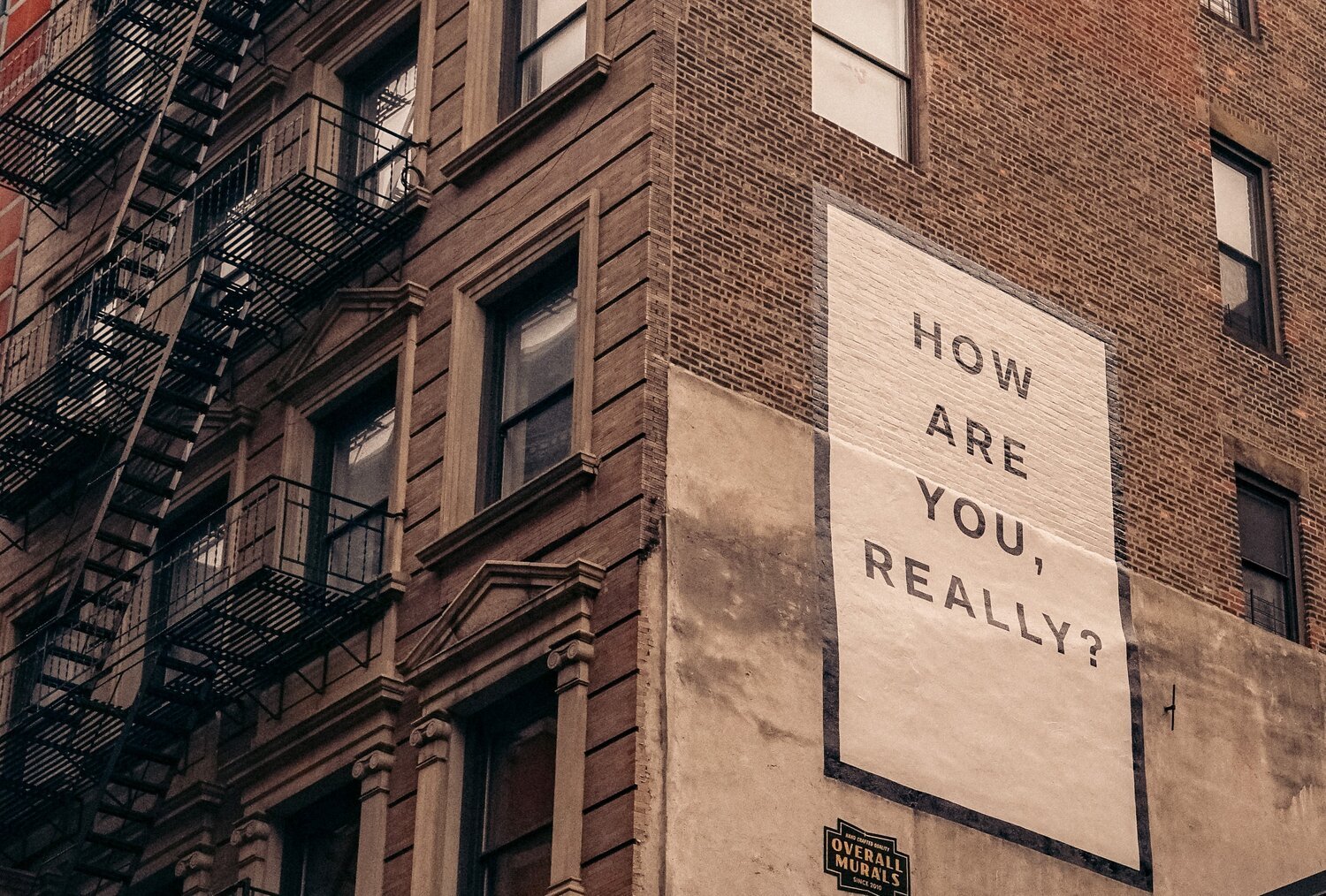It’s Okay To Not Be Okay
Originally published on September 25, 2021
This is an idea I’ve seen circulating a lot lately, probably because 2020 — and most of 2021, 2022, 2023, you get it — has been an absolute shit show. And it’s true that a global pandemic can exacerbate a lot of already-difficult challenges that people were facing, not to mention create a laundry list of other issues. There’s no need to recount all of the things that went wrong since 2020 (remember murder hornets??), but needless to say, there was a lot.
Literally everyone is going through their own process of dealing with this.
You’re not alone if the past couple of years have felt challenging. You’re not alone if you’re struggling to feel “normal” (but what even is normal? I can’t even remember life before masks). In fact, the pandemic has actually helped many people feel comfortable speaking out about their struggles because of the shared trauma we’ve all been dealing with, which is AWESOME (the speaking out, not the trauma).
But the thing is, while COVID-19 certainly threw everyone’s existence for a fucking loop, people have been suffering long before that and have not felt empowered to speak out about it. And I’m here to encourage people to be raw and honest and authentic about how shitty they feel.
Case in point, a scenario in which Person A has been feeling depressed lately but not sure why, and Person B has been struggling with grief but feels like everyone else has too and probably doesn’t have time to listen to their problems, and the two run into each other at Trader Joe’s:
Person A: Hey, Person B! How’ve you been?!
Person B: Omg, I’ve been great, how are you?
Person A: I’ve been really good, thanks! We should get together sometime!
Person B: Oh yeah, for sure! I’ll text you, see you around!
Is this relatable to anyone?! How many times does someone ask how we’re doing and we say “fine, thanks” even though we are very much not fine? Why is this a thing? Why do we feel so ashamed/embarrassed/guilty/awkward/uncomfortable admitting that we’re not okay? Especially when it’s highly likely that other people are going through their own struggles too?
I wonder if part of it is the weight of the pressure that we carry every day, the pressure to be good enough or to have it all figured out. Nobody is perfect, even if Instagram makes it seem otherwise. In a world of social media, influencers, and lots of opportunities for constant comparisons, it can be difficult to avoid feeling shame (or whatever else) when we feel like our lives are not “as good” as others’ or that we are not where we want to be. Even for — or perhaps, especially for — those who are often doing well and feeling well, it can be challenging to acknowledge that you’re not doing okay, because it may feel like there’s an expectation to be.
Whether you’re having a bad mental health day or a bad mental health year, it’s truly okay not to be okay. We are all struggling in some way, all trying to cope in some way, all trying to navigate life in some way. Dealing with a difficult time does not mean you are failing, or that you are not good enough, or that you’re not doing things right. It means you’re human.
So, from a therapist, here are a few ways to cope with these difficult days.
Allow yourself to feel and experience your feelings.
The natural tendency for most people when experiencing unpleasant or difficult emotions is to try to avoid them. Avoidance is like a boomerang: you can throw it away for awhile and ignore it, but eventually it comes back to bite you in the ass. Those emotions will find some way to show themselves in your life, or they may get bottled up and lead to some kind of outburst later. Either way, you’re doing yourself a disservice by trying to suppress or avoid your feelings. Instead, embrace them. Allow yourself to truly feel them. Even if it leads to crying or perhaps internally screaming, you’re a lot more likely to overcome and move past difficult feelings when you allow yourself to experience them fully. And you deserve to move past them.
Practice self-compassion to release shame and embarrassment.
It is SO important to release shame and embarrassment — those are manufactured emotions, based on our interpretation of how others might be judging us for what we’re going through. Everyone experiences bad mental health days/weeks/years and we all deal with our struggles in different ways. Speaking to yourself with criticism won’t make you feel any better. It won’t help you cope with your feelings. Instead, practice self-compassion. Practice telling yourself that it’s normal to have bad days, it’s okay to feel stuck, it’s a sign of strength to cry or feel your feelings. If you wouldn’t say something harsh to your best friend or your child, try not to say it to yourself.
Utilize your support system and personal resources.
When we’re feeling down, it can sometimes be difficult to rely on our loved ones for fear of burdening them or adding to their own stress. Other times, it might be the fear of being judged holding us back from reaching out to others. But when we welcome others in, when we allow our friends and family to support us, it’s like having an extra set of hands to help carry something really heavy. With the help of the people who love you, you can get through this challenging time just a bit easier. Being around your loved ones might also be a helpful distraction during hard times — research shows that contributing ourselves to others in some way, however small, can help us tolerate and get through stressful situations.
In a similar vein, I encourage you to access any personal resources you have to help you through a difficult time. Whether that’s a hobby, or a wellness practice like journaling or exercise, or even the tendency to stress-clean, (I wish I had that stress response) leaning into the things that you like and the things you’re good at can help carry you through a challenging time.
Remind yourself that this is temporary.
It’s true that life often ebbs and flows, with extraordinary ups and devastating downs. But what they all have in common is that they’re temporary. Our difficult, challenging, and sometimes traumatic experiences remain part of us, but if we allow ourselves to grieve and heal and grow we can overcome the overwhelming emotions associated with these experience. Unfortunately, we can’t control some of the difficult things we face in life, but we can face them with courage (and sometimes fear, or sadness, or anger, or whatever else you might be feeling) and remind ourselves that we will get through this, and we will be stronger for it.
We all go through difficult times and it’s okay if you can’t be as strong or fun or happy as you would be on a better day. It’s okay not to be okay — and I think it’s time we as a society acknowledge that.

